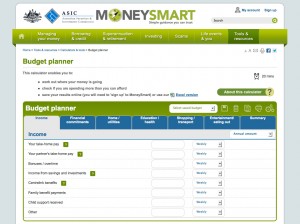With the new financial year upon us, now is the perfect time to turn our attention to our financial goals for the next 12 months, and the best place to start is with good money management
Budgeting is about as fun as having teeth pulled at the dentist but don’t be deterred, it doesn’t have to be a chore. Done the right way, it will make life easier and ultimately create more wealth for you.
To ensure you stay on track throughout the year and remain motivated, it is important to set goals from the outset. Whether you are dreaming of a European holiday or saving for a home deposit, having a goal in mind will give you something to work towards and ensure you stay on track.
To start, you need to account for all your expenses.
Set up your budget for the next six to 12 months and include any irregular expenses, such as vehicle registration and insurance. You could either account for these expenses as a one-off payment at the time they are due, or to lessen the blow, factor these expenses into your regular pay schedule – whether it is weekly, fortnightly or monthly. If you are putting $50 away each pay day, the big expenses won’t seem so nasty.
Ensure you include a buffer.
We all know that things come up in life that we can’t always factor for. This could be anything from a friend’s birthday or engagement to unexpected home or car repairs. Adding a buffer means you won’t break your budget if something costs more than expected. At the end of the month, if you have money left over from your buffer, you can either add this to your savings or splurge on a treat to reward yourself for good savings habits.
Pay yourself first.
To ensure you are continually saving, make sure that when pay day rolls around, you pay yourself first. By treating your savings as a bill that needs paying, you can guarantee that your savings account continues to grow. If you don’t transfer your savings into another account you may be easily tempted to spend it, which will severely impact your savings goals.
Finally, review and revise.
Our lives are constantly changing and with this, so too do our financial needs. To make the most of your budget it is important to schedule regular reviews. Assess your spending habits and make adjustments where necessary. By reviewing your spending habits, you may find areas where you are not sticking to the budget and areas where you can easily reduce spending. It may be something small like heading to the gym instead of happy hour, or putting Foxtel on hold for a few months. These small changes will make a big difference over a 12 month period and will set you well on your way to achieving your financial goals.
Check out the ASIC online Budget Planner tool, or download their Excel spreadsheet to get you started.






